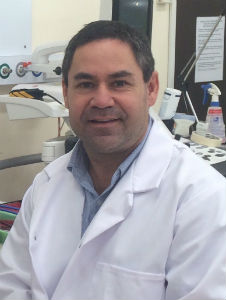 Tuesday 4 December 2018 9:14am
Tuesday 4 December 2018 9:14am

Associate Professor Daryl Schwenke
In pre-clinical trials, University of Otago researchers have discovered a promising new therapy that has the potential to be used clinically for improving survival rates for people who suffer a heart attack.
The researchers from HeartOtago - a group of cardiovascular researchers and clinicians located at the University and Dunedin Hospital - the Brain Health Research Centre and Centre for Neuroendocrinology, found blocking specific oxytocin cells within the brain after a heart attack dramatically improved survival outcomes. Their research was recently published in biological sciences journal Communications Biology.
“Our results strongly advocate blockade of oxytocin cells as a promising emerging therapy for the acute management of an acute heart attack,” Associate Professor Daryl Schwenke says.
An acute heart attack, or myocardial infaction, is one of the most common causes of death in industrialised societies. Often death can occur within the first few hours following a heart attack due to a dangerous over-stimulation of nerves that control heart function.
Associate Professor Schwenke explains that when a person has a heart attack the brain thinks the heart is damaged, so it “speaks a lot louder to the heart”.
“If you've just had a heart attack, the one thing the heart doesn't need is to be told to work harder. So, we need to try and create an environment where the heart feels less stressed after a heart attack in order to try and restore its natural function.”
The reason why the nerves that control heart function become over-activated has remained unclear. However, Associate Professor Schwenke and his colleagues Dr Ranjan Roy, Dr Rachael Augustine and Professor Colin Brown, have recently identified a distinct region within the brain containing oxytocin cells that become “switched on” immediately after an acute heart attack.
Although oxytocin is traditionally associated with uterine contractions during labour and breastfeeding, some of these cells also modulate the nerves that control the heart.
“When we experimentally blocked these oxytocin cells after a heart attack, we found that the heart nerves did not become activated and, remarkably, survival and outcome were dramatically improved,” Associate Professor Schwenke says.
This exciting scientific breakthrough is still currently in the experimental stages. However, Associate Professor Schwenke and his colleagues are optimistic that a new and novel pharmacological drug targeting the oxytocin cells will one day be eligible for advancing the concept to clinical trials.
“We are very hopeful that this will have long-term benefits for all cardiovascular patients in the future,” Associate Professor Schwenke says.
For further information, contact:
Associate Professor Daryl Schwenke
Department of Physiology – HeartOtago
Email daryl.schwenke@otago.ac.nz
Liane Topham-Kindley
Senior Communications Adviser
Tel 479 9065
Mob 021 279 9065
Email liane.topham-kindley@otago.ac.nz
Electronic addresses (including email accounts, instant messaging services, or telephone accounts) published on this page are for the sole purpose of contact with the individuals concerned, in their capacity as officers, employees or students of the University of Otago, or their respective organisation. Publication of any such electronic address is not to be taken as consent to receive unsolicited commercial electronic messages by the address holder.
FIND an Otago Expert
Use our Media Expertise Database to find an Otago researcher for media comment.